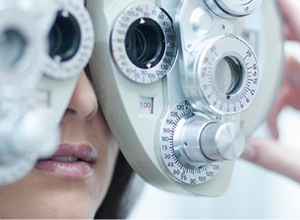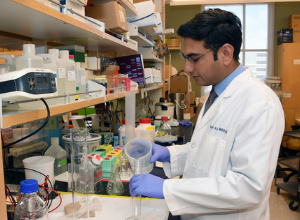Description
This program is aimed at training candidates for the job of a “Nutritionist”, in the “Health Care Sector Skill Council” Sector/Industry and aims at building the following key competencies amongst the learner:
| 1. Assists a registered Diet in planning, preparing and serving meals to patients with specific dietary and nutritional needs.
|
2. Assists in Diet Preparation, Diet Regulations and Food Handling. |
| 3. Assists in Maintaining and Complying Safety and Sanitary standards.
|
4. Assist and Perform Certain Administrative functions. |
| 5. Able to work in collaboration with Diet and other Healthcare Providers and deliver the Healthcare Services provided by them.
|
6. Able to demonstrate clinical skills, Communication Skills and Ethical Behaviour. |
| 7. Have a general understanding of Skeletal System, Cardiovascular System, Lymphatic System, Respiratory System, Gastrointestinal System, Endocrinology, Excretion System, Central Nervous System, and Reproductive System.
|
8. Assist in Nutritional Biochemistry, and computation of Nutrition for different kinds of persons including patients. |
This course encompasses 11 out of 11 National Occupational Standards (NOS) of “HSS/Q5201/Diet Assistant” Qualification Pack issued by “Health Care Sector Skill Council”.
| S.
No |
Topic/Module | Duration
(in Hours) |
Key Learning Outcomes | Corresponding NOS Code |
| 1 | Maintenance of Hygiene, Food Safety and Prevent Contamination | 120 Hrs | · Maintain Hygiene & Food Safety
· Store Food Safely and Prevent Contamination · Handle Food Safely to Prevent Contamination · Select a therapeutic diet / menu based on Diet prescription · Prepare food safely to maintain nutritive value and avoid contamination · Educate patient on dietary restrictions as per instructions from Diet |
HSS / N 5201
HSS / N 5202 HSS / N 5203 HSS / N 5204 HSS / N 5205 HSS / N 5206 |
| 2 | Professional Culture, Protocols, Code of Conduct and Waste disposal standards | 60 Hrs | · Act within the limits of one’s competence and authority
· Maintain a safe, healthy and secure environment · Practice Code of conduct while performing duties · Follow biomedical waste disposal protocols · Follow infection control policies and procedures
|
HSS/ N 9603
HSS/ N 9606 HSS/ N 9607 HSS/ N 9609 HSS/ N 9610 |
| 3 | Communicative English and Official Communication
(Written and Oral)
|
20 Hrs |
· Candidate should able to Communicate in English. · Candidate should able to read and write so that he/she should able to understand the prescription. |
Additional as Required for the Job Role |
| 4 | Computer Fundamentals | 20 Hrs | · Candidate should able to use computer for maintaining records for statistical database
· Candidate should able to use computer for maintaining records for medical store. |
Additional as Required for the Job Role |
| 5 | Basic Nutrition | 16 Hrs | · Introduction to nutrition –
· Food as source of nutrients, functions of food, definition of nutrition, nutrients & energy, adequate, optimum & good nutrition, malnutrition. · Nutrition – Fitness, Athletics & Sports. · Food guide – Basic five food groups – How to use food guide (according to R.D.A.) · Interrelationship between nutrition & health – Visible symptoms of goods health · Use of food in body – Digestion, Absorption, transport & utilization. · Role of fibres in human nutrition. · Carbohydrates: Functions, classification, food sources, storage in body. · Fats & oils : composition, saturated and unsaturated fatty acids, classification, food · Sources, function of fats. · Proteins – composition, sources, essential & non-essential amino acids, functions, · Protein deficiency. · Water – as a nutrient, function, sources, requirement, water balance & effect of deficiency. · Minerals – macro & micronutrients – functions, sources. Bioavailability and deficiency of Calcium, Iron, Iodine, Sodium & Potassium (in very brief) · Vitamins (water & fat soluble) – definition, classification & functions. · Effect of cooking & heat processing on the nutritive value of foods. · Processed supplementary foods. · Food sanitation in hygiene. |
Additional as Required for the Job Role |
| 6 | Human Physiology | 12 Hrs | · Cell – Structure and function
· Blood – Blood cells, Haemoglobin, Blood groups, Coagulation Factors , Anaemia · Skeletal System -Bones, joints & bone deformities in brief. · Cardiovascular system – Heart rate, Cardiac cycle, cardiac output, blood pressure, hypertension, radial pulse. · Lymphatic system – Lymph glands and its function, spleen -structure and functions. · Respiratory System – Ventilation, Functions, Lungs volumes and capacities. · Gastrointestinal System – Process of digestion in various parts. · Endocrinology – List of Endocrine glands, Hormones: Their secretion and functions (in brief). · Excretion system – Structure of nephron , Urine formation · Central Nervous System – Parts, Sliding Filament Theory , Neuro Muscular Junction , Wallerian Degeneration, Motor Nervous system – Upper motor neuron system & lower motor neuron system. Sensory nervous system, Sympathetic Nervous system & Parasympathetic nervous system. · Skin – Structure and functions · Reproductive system – Structure and functions of male & female reproductive organs, menstruation, puberty, menopause, fertilization and development of fertilized ovum, placenta and its function. · Special senses – Structure and function of eye and ear, common diseases of eye and ear (in brief)
|
Additional as Required for the Job Role |
| 7 | Nutritional Biochemistry
|
12 Hrs | · Basics of energy metabolism, nutrition & dietetics – Unit of measuring energy, calorific value of food, BMR & factors affecting it, SDA of food, calculation of energy requirement, balanced diet, nutrition in health & diseases (protein energy malnutrition).
· Chemistry of carbohydrates & their related metabolsim – Introduction, definition, classification, biomedical importance Brief outline of meatbolism: Glycogenesis & glycogenolysis (in brief), Glycolysis, citric acid cycle & its significance, HMP shunt & Gluconeogenesis (in brief), regulation of blood glucose level. · Amino acids – Definition, classification, essential & non essential amino acids. · Chemistry of Proteins & their related metabolism – Introduction, definition, classification, biomedical importance, Metabolism: Transformation, Decarboxylation, Ammonia formation & transport, Urea cycle. · Chemistry of Lipids & their related metabolism – Introduction, definition, classification, biomedical importance, essential fatty acids, identification of fats & oils (saponification no, acid no, iodine no, acetyl no, reichertmiesel no. etc.) Brief out line of metabolism: Beta oxidation of fatty acids, Ketosis, Cholesterol & it’s clinical significance, Lipoproteins in the blood composition & their functions in brief, Atherosclerosis. · Enzymes – Introduction, definition, classification, coenzymes, isoenzymes, properties, factors affecting enzyme action, enzyme inhibition, diagnostic value of serum enzymes – Creatinine kinase, Alkaline phosphatase, Acid phosphatase, LDH, SGOT, SGPT, Amylase, Lipase, Carbonic anhydrase etc. Acid base balance concepts & disorders – pH, Buffers, Acidosis, Alkalosis · Hormones – Classification, general mode of action, hormones of Pituitary, Thyroid, Parathyroid, Adrenals, Reproductive Glands, Pancreas, hormonal disorders, counter regulatory hormones. · Vitamins – Water & fat soluble vitamins, sources, requirement, deficiency disorders & biochemical functions. · Water metabolism – Distribution of fluids in the body, ECF, ICF, Water metabolism, dehydration. · Hyperglycemia & hypoglycemia – Diabetes mellitus – definition, types, features, gestation diabetes mellitus , glucose tolerance test, glycosurias, Hypoglycemia & its causes · Liver functions and their assessment – Based on – a) Carbohydrate metabolism b) Protein metabolism c) Lipid Metabolism d) Measurements of serum enzyme levels e) Bile pigment metabolism: Jaundice – its types and their biochemical findings. · Renal functions tests – Various tests, GFR & clearance. · Tumor markers & their clinical applications – Including oncofeatal antigens, CEA etc. · General concepts & functions of immunoglobulins
|
Additional as Required for the Job Role |
| 8 |
Family Meal Management |
10 Hrs | · Introduction to meal management – balanced diet, food groups & the planning of balance diet.
· Food guides for selecting adequate diet. · Diet therapy · Diet & stress in current scenario. · Meal planning for the family. · Indian meal patterns – vegetarian & non-vegetarian. · Food faddism & the faulty food habits. · Nutritive value of common Indian recepies. · Nutrition in pregnancy – Physiological stages of pregnancy, nutritional requirements. Food selection, complication of pregnancy. · Nutrition during lactation – Physiology of lactation, nutritional requirements. · Nutrition during infancy – growth & development, nutritional requirements, breast feeding, infant formula, introduction of supplementary foods. · Nutrition during early childhood (Toddler/Preschool) – Growth & nutrient need, nutrition related problems, feeding patterns. · Nutrition of school children – Nutritional requirement, importance of snacks, school lunch. · Nutrition during adolescence – Growth & nutrient needs, food choices, eating habits, factor influencing needs. · Nutrition during adulthood – Nutritional requirements, feeding pattern. · Geriatric nutrition: Factors affecting food intake and nutrient use, nutrient needs, nutrition related problems.
|
Additional as Required for the Job Role |
| 9 | Concept of Health and Disease
|
10 Hrs | · Concept of health & disease and well being
· Natural history of disease and role of hospitals to offer various levels of care · Prevention aspect of diseases · Dynamics of disease transmission · Changing pattern of diseases · Concept of health indicators
|
Additional as Required for the Job Role |
| 10 |
Communicable Diseases and Common Diseases |
10 Hrs | · Classification of Diseases
· Droplet infection, Measeles, Chicken Pox, Small Pox, Mumps and Influenza · Diseases affecting Respiratory System: Tuberculosis, Pneumonia, Asthma, Bronchitis · Diseases affecting Gastro Intestinal System: Dysentery, Diorrhea, Typhoid, Cholera, Peptic Ulcer, Liver Diseases (Jaundice, Hepatitis, Cirrhosis, Gastritis, Appendiciitis) · Skin Diseases & Venereal Diseases, Scabies, Soriasis, Fungal Infection, Venereal Diseases, Leprosy · Blood Anaemia, Leukemia, Bleeding Disorders · Urinary Diseases: Glomerulo Nephritis, Pyelo Nephritis · Cardiovascular Diseases: Angina Pectoris, Hypertension, Valvular Diseases · Nervous System- Polio, Meningitis · Viral Diseases : Aids, Rabies · Insect-Born Diseases: Malaria, Filariasis
|
Additional as Required for the Job Role |
| 11 | Health Education | 10 Hrs | · Aims & Principles of Health education
· Methods of Health Education · Effects of health education · Levels & practice of health education · Need of Health education to attain positive health
|
Additional as Required for the Job Role |
On Job Training: 150 Hours
Total Programme Duration: 450 Hours (300 Hrs Theory & 150 Hrs OJT)
(This syllabus/ curriculum have been approved by Health Care Sector Skill Council (name of relevant Sector Skill Council or NSDC designated authority).







Reviews
There are no reviews yet.